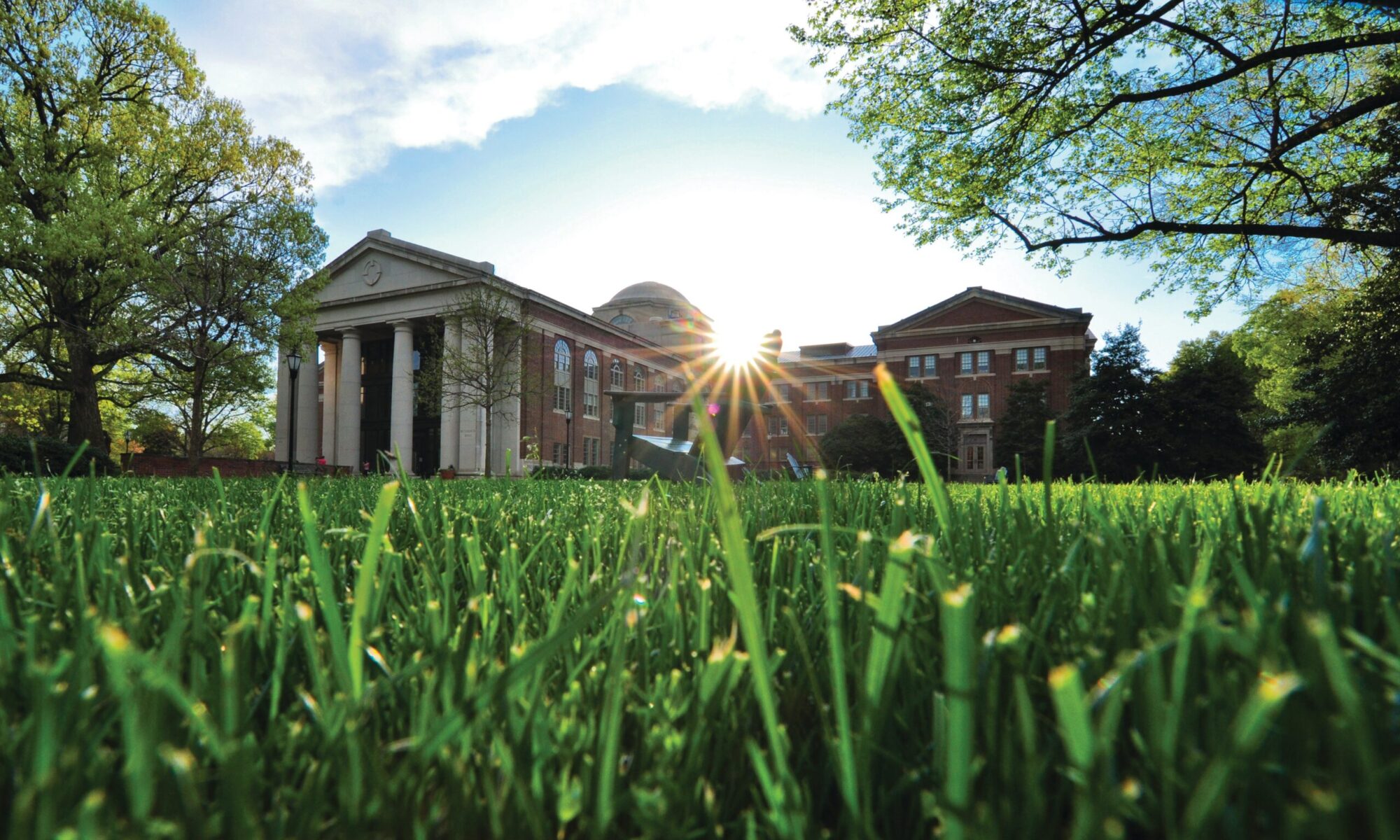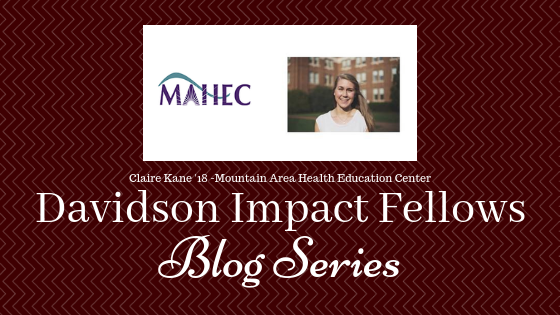This blog was written by Claire Kane ’18, 2018-2019 Davidson Impact Fellow for the Mountain Area Health Education Center (MAHEC).
Twice a year, physicians at the Mountain Area Health Education Center (MAHEC) lead medical brigades to a mountainous region of Honduras, near the town of Camasca, where they provide medical care for families living in rural villages. For the past several years, MAHEC’s Davidson Impact Fellow has been given the opportunity to attend the trip and work alongside physicians, medical students, pharmacists, nurses, and other learners to provide care to this historically underserved population. Excited by the prospect, I quickly agreed to join this year’s August brigade without thinking through what exactly my role on the trip would entail. After the first day of clinic, I realized that because I am not qualified to provide medical care and my Spanish is conversational at best, my responsibilities were limited. Initially I felt both embarrassed and disappointed that I could not contribute more to the clinics’ operations, especially given the high volume of patients that came in to receive care. However, within days, several of the medical students attending the trip encouraged me to utilize the daily clinics as learning opportunities by shadowing them, posing questions, and speaking Spanish with patients. Thanks to those students, by the time the trip was over, I had learned how to use an otoscope, how to perform joint injections for knee osteoarthritis, how to identify the physical manifestations of a parasite infection, and much more. Yet, when I reflect back on the trip, the technical skills or medical terminology that I learned are not what stands out. Instead, I remember the ways in which the medical students taught me to embrace learning in the postgraduate “professional” world.
Like many young adults entering into postgraduate life, when I began my first professional work experience as an Impact Fellow at MAHEC, I felt a sense of pressure to perform and impress my coworkers and supervisors. This pressure translated into my hesitancy to ask questions, to be vulnerable, and to ask for help. I didn’t want to burden the providers that I worked with, who simultaneously juggle their clinical practice alongside community engagement and education initiatives. Ironically, it took me traveling all the way to Honduras to understand that everyone at the Mountain Area Health Education Center, medical students and administrators alike, truly embodies and embraces the organizational mission to cultivate learning. At MAHEC, we are often dealing with complex issues including the treatment of substance use disorder and the ever-changing status of our healthcare system and I have realized that I can only do my job well insofar as I understand the dynamics at play. Ultimately, understanding requires being vulnerable, admitting my shortcomings, asking for assistance, and opening my mind to new ways of learning and doing. While Davidson prepared me well to adapt in this way, the postgraduate setting has still felt like a substantial change from the learning environment that I had grown accustomed to during my four years at Davidson. Whereas at Davidson, learning opportunities were always directly accessible, learning in the professional world oftentimes requires you to apply more effort in order to receive the answers to your questions. As a result, I have recognized that learning curves will accompany every transition throughout my professional career, but a sense of adaptability and resilience that I developed at Davidson, along with a willingness to question and learn that I have developed at MAHEC will sustain me through the challenges.

